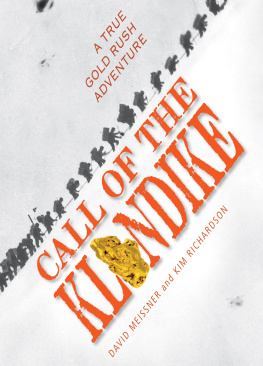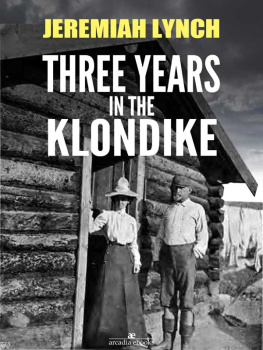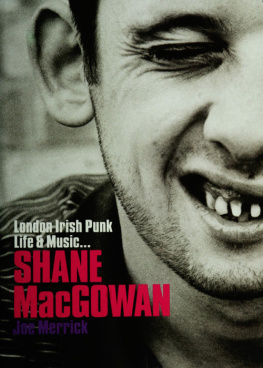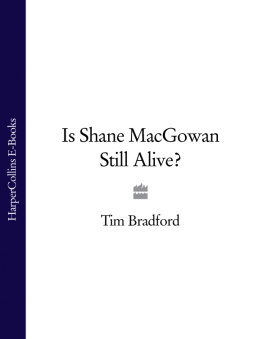It was more or less by accident that the story in this book came to be written down. In 1941, I started to collect folklore in Cloghaneely for the Irish Folklore Commission. It was at the height of the war and thousands of tons of shipping were being sunk by day and night just out from us beyond Tory Island. But its an ill wind that blows nobody any goodthe market for cattle was booming.
On the sixth of April, the fair was being held at Gortahork. I was staying with Sean McSweeney whose house was by the fair-green and I was using the fair as a means of getting to know people. I was standing on the doorstep when I noticed a sturdy old man across from me who was having some trouble getting his pipe going. He lifted his head and, probably because he knew me by sight, he came over and spoke to me.
My heart is broken with this old pipe, he said. You, now, move about a lot and you should be able to tell me where Id get a good one.
I can do that, I said, and its not all that far away.
I had just bought a new pipe that I hadnt smoked at all. I went back into the house, got the pipe and handed it to him. He liked it and thanked me for it fervently.
Thats how I got to know Micky MacGowan; and I suppose it was the same pipe that gave another twist to my life. In the autumn of 1943, I married Anna MacGowan, Mickys daughter. I went to live in his house and was able to get to know him properly.
He was a strong sturdy man who must have been about five feet nine inches high when young. Sinewy and robust, he was also intelligent and quick-witted. His mind, indeed, was as tough as his broad chest and his character was such that he was remembered well, no matter where he went. He spoke forth-rightly and wouldnt hide what he thought from any person; high or low were all the same to him: he had no soothering tongue. He was truthful and uprightso truthful that he expected everybody to be like himself. By nature, he was a little bit abrupt, even fiery (as can be seen from his story) but that may have come from the way he had spent a good portion of his life. In the places where he had been, it was every man for himself. Anyone who couldnt look after himself, as Micky said, got it in the neck.
His faith was very strong. He was one of those people who knew that it was not by chance or without purpose that he had been born into the world. He always tried hard to carry out the obligations of his beliefs.
All his life, he had a great interest in his native tongue. He disliked those who reneged their birthright and particularly those who went from their home and after a while came back with their accents polished up. His proudest moments were when he had a crowd of Irish speakers around him while, talking to them, he tried to increase their vocabulary. He both amused and helped me in this way. In the summer, when the visitors would come and stand looking at the sea-serpents rib over the front gate, he used to go down and talk to them; and very dissatisfied hed be with anyone who didnt know Irish. Be damned but youre a funny crowd, hed say, not knowing a word of your own languageand this, as like as not, to visiting Englishmen!
Micky and myself spent many a night beside the fire talking and yarningand he was a first-class story-teller. As usual with his like, hed speak frequently about the ways of the world and about the changes hed seen in his time. And so would come the stories and the events of his life. It cheered him up, at the end of his days as he sat snugly by the fire, to tell stories that would set your skin tingling and your heart beating faster. Not that any of his household paid any attention to him: they had heard it all before and often; but I had a great liking for him and, as this was living lore which the story-teller himself had actually experienced, I thought it worth saving and storing in the archives of the Folklore Commission. I also had the idea that some social historian would be interested in it in days to come.
I listened carefully to the whole story. I made notes of all the different adventures; and when I had that done, I asked Micky one night if he would record all that he had told me. He averred that he would and welcome; so when I had got some semblance of order into my notes, he started off. I didnt try to tax him beyond his resources at any time but bit by bit I got the whole story from him. The tale could be as long again but I think that what we have here is sufficient to give the reader an idea of the lives our people led trying to keep body and soul together and at the same time send home the odd few pennies to those who were still there holding the fort, so to speak.
As I took down the story, I never thought that one day it would be published. But a couple of years ago, my friend Proinsias O Conluain came our way looking for folklore about St. Patricks Day for a programme on Radio Eireann. I told him the story of how Micky and his friends spent the Feast in Klondike and, in the course of our conversation, I mentioned that I had a copy of Mickys own account of it. Proinsias abstracted enough from the manuscripts for a series of programmes; but he didnt stop there. He worked away until he had edited the whole story and shaped it into a book; he gave me no rest or respite until he had the material ready to be submitted for the Oireachtas Literary Competitions in 1958 where it won the annual Award of the Irish Book Club.
The pens trace remains though the hand that held it dies, as the old saying has it, and so it has been with Micky. He died on the 29th November, 1948. Without knowing it, he left his monument behind him. May he have eternal rest.
S EAN O H E OCHAIDH
AT THE FOOT OF CROCKNANEEVE
Anyone who spends a while at Gortahork in County Donegal is bound to hear about Crocknaneeve, the noble hill that rises in the western part of Cloghaneely between the village and the setting sun. Its not without reason that its known as Crocknaneeve. It is said that St. Columbkille, St. Finan and St. Begley went to the top of the hill one day and, of course, there lay the whole parish spread out below them. What they intended to do was to divide the parish between them and, as Tory was a large important area then, each of them wanted to get the island for himself. What they had arranged was that each man would go wherever his little cross fell.
St. Begley flung his cross first and said: My little cross will go to Tory with the help of God. But instead the cross turned eastwards and fell in the place thats called Tullaghobegley even now.















